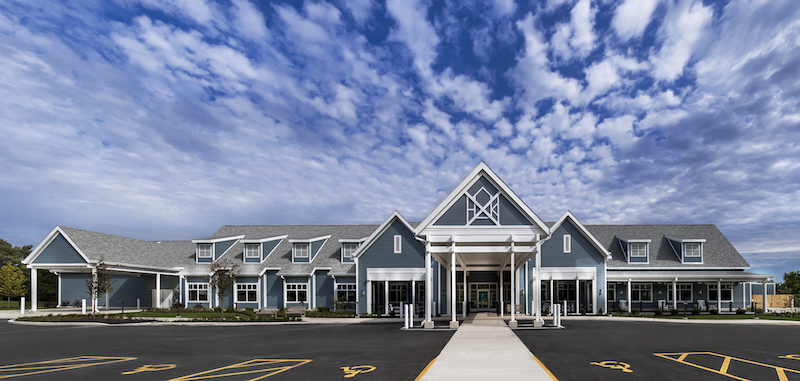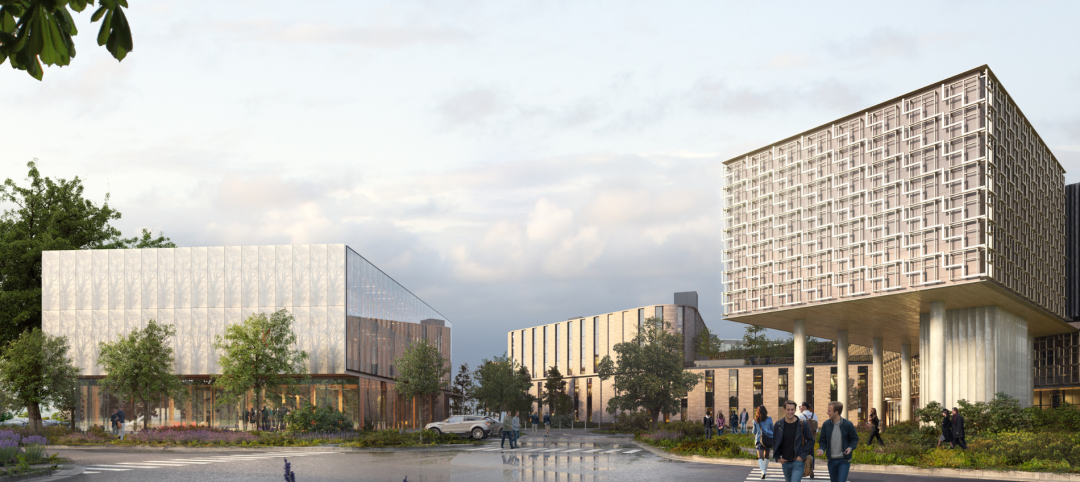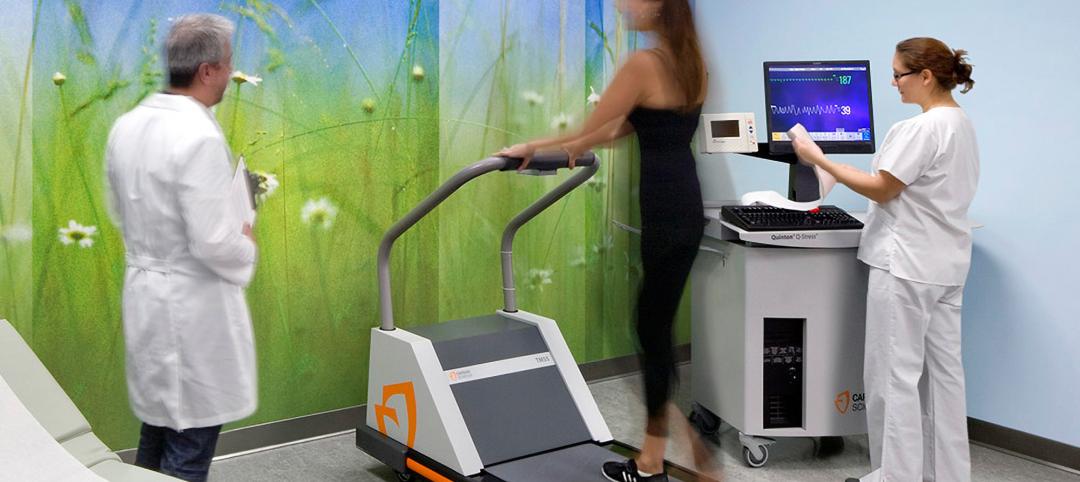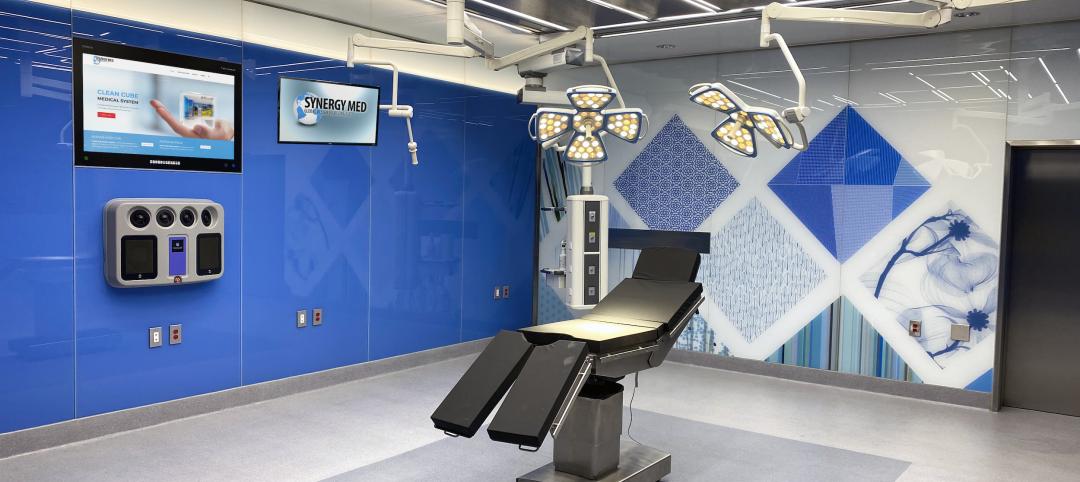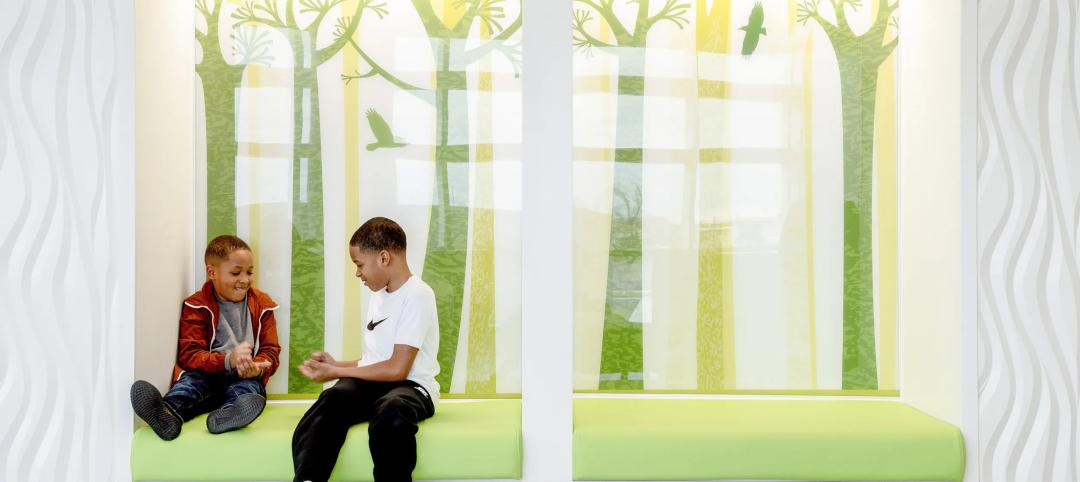Children with medically complex conditions represent an estimated three million children who account for 40% of Medicaid spending on children. Growing at 6% annually, they are among the most rapidly growing sectors of the pediatric population.
As hospitals struggle to manage costs and resources, moving children with such maladies through a continuum of care is critical to meeting the clinical, social, and emotional needs of this population and their families.
There are over 14,000 children with medical complexities in Illinois alone, where, in late October, Almost Home Kids—an organization that provides transitional care in home-like settings for children with complex medical needs, as well as training and respite care for their families—opened its third location in the country, on the Peoria campus of OSF Healthcare Children’s Hospital of Illinois, the state’s third-largest pediatric hospital.
Almost Home Kids also operates 12-bedroom houses facilities in Naperville, Ill., and Chicago. The three facilities were funded entirely by community and business donations.
Stantec assisted in the design, medical planning, and interiors of the 22,000-sf Almost Home Kids in Peoria, which is the first implementation of the organization’s national prototype. Stantec worked with a panel of Almost Home Kids clinicians and families during the design and site adaptation processes.

Almost Home Kids provides training to help families care for their sick chlidren. Image: Ballogg Photography
“This is much more than just a project for us,” says Rebel Roberts, FAIA, RIBA, FACHA, Practice Leader for Design at Stantec. “It’s a positive healing space and a comforting home where families feel relieved and welcome. We hope this prototype continues to get adopted and we see more Almost Home Kids facilities throughout the country, because they truly are remarkable.”
In an interview with BD+C, Roberts elaborates that neither of Almost Home Kids’ first two facilities—a renovated house in Naperville and a midrise build-to-suit within a relatively tall building in downtown Chicago—was a suitable model for expansion into other cities. The Peoria house, on the other hand, is a ground-up, freestanding unit, for which Stantec did mockups and drawings. The plan is scalable, says Roberts, and can be attuned to a market’s local climate.
Children at the Almost Home Kids at OSF HealthCare Children’s Hospital of Illinois receive 24-hour medical and nursing support from skilled pediatric nurses. The organization helps train family members to provide the best care for their children, including how to operate and maintain the child’s home medical equipment, prepare medications and treatments, and maximize government support systems such as home modifications and/or obtaining home nursing hours.
The organization’s website states that it took “several years of planning, collaboration, and construction” with the hospital to complete the $8.5 million Peoria facility, whose general contractor was Core Construction and engineer was IMEG. Almost Home Kids has stated previously its intention to expand nationally and open new facilities across the country, but has not disclosed its timetable or proposed locations.
Related Stories
Healthcare Facilities | Aug 18, 2023
Psychiatric hospital to feature biophilic elements, aim for net-zero energy
A new 521,000 sf, 350-bed behavioral health hospital in Lakewood, Wash., a Tacoma suburb, will serve forensic patients who enter care through the criminal court system, freeing other areas of campus to serve civil patients. The facility at Western State Hospital, to be designed by HOK, will promote a holistic approach to rehabilitation as part of the state’s vision for transforming behavioral health.
Healthcare Facilities | Aug 10, 2023
The present and future of crisis mental health design
BWBR principal Melanie Baumhover sat down with the firm’s behavioral and mental health designers to talk about how intentional design can play a role in combatting the crisis.
Market Data | Aug 1, 2023
Nonresidential construction spending increases slightly in June
National nonresidential construction spending increased 0.1% in June, according to an Associated Builders and Contractors analysis of data published today by the U.S. Census Bureau. Spending is up 18% over the past 12 months. On a seasonally adjusted annualized basis, nonresidential spending totaled $1.07 trillion in June.
Healthcare Facilities | Aug 1, 2023
Top 10 healthcare design projects for 2023
The HKS-designed Allegheny Health Network Wexford (Pa.) Hospital and Flad Architects' Sarasota Memorial Hospital - Venice (Fla.) highlight 10 projects to win 2023 Healthcare Design Awards from the American Institute of Architects Academy of Architecture for Health.
Designers | Jul 25, 2023
The latest 'five in focus' healthcare interior design trends
HMC Architects’ Five in Focus blog series explores the latest trends, ideas, and innovations shaping the future of healthcare design.
Market Data | Jul 24, 2023
Leading economists call for 2% increase in building construction spending in 2024
Following a 19.7% surge in spending for commercial, institutional, and industrial buildings in 2023, leading construction industry economists expect spending growth to come back to earth in 2024, according to the July 2023 AIA Consensus Construction Forecast Panel.
Healthcare Facilities | Jul 19, 2023
World’s first prefab operating room with fully automated disinfection technology opens in New York
The first prefabricated operating room in the world with fully automated disinfection technology opened recently at the University of Rochester Medicine Orthopedics Surgery Center in Henrietta, N.Y. The facility, developed in a former Sears store, features a system designed by Synergy Med, called Clean Cube, that had never been applied to an operating space before. The components of the Clean Cube operating room were custom premanufactured and then shipped to the site to be assembled.
Sponsored | | Jul 12, 2023
Keyless Security for Medical Offices
Keeping patient data secure is a serious concern for medical professionals. Traditional lock-and-key systems do very little to help manage this problem, and create additional issues of their own. “Fortunately, wireless access control — a keyless alternative — eliminates the need for traditional physical keys while providing a higher level of security and centralized control,” says Cliff Brady, Salto Director of Industry Sectors Engagement, North America. Let’s explore how that works.
Healthcare Facilities | Jul 10, 2023
The latest pediatric design solutions for our tiniest patients
Pediatric design leaders Julia Jude and Kristie Alexander share several of CannonDesign's latest pediatric projects.
Healthcare Facilities | Jun 27, 2023
Convenience ranks highly when patients seek healthcare
Healthcare consumers are just as likely to factor in convenience as they do cost when deciding where to seek care and from whom, according to a new survey of 4,037 American adults about their attitudes and preferences as patients. The survey, conducted from April 19-28 by JLL, in many ways confirms the obvious: that older generations seek preventive care more often than younger generations; that insurance coverage is a primary driver for choosing a provider or hospital; and that the quality of service affects the patient experience.


